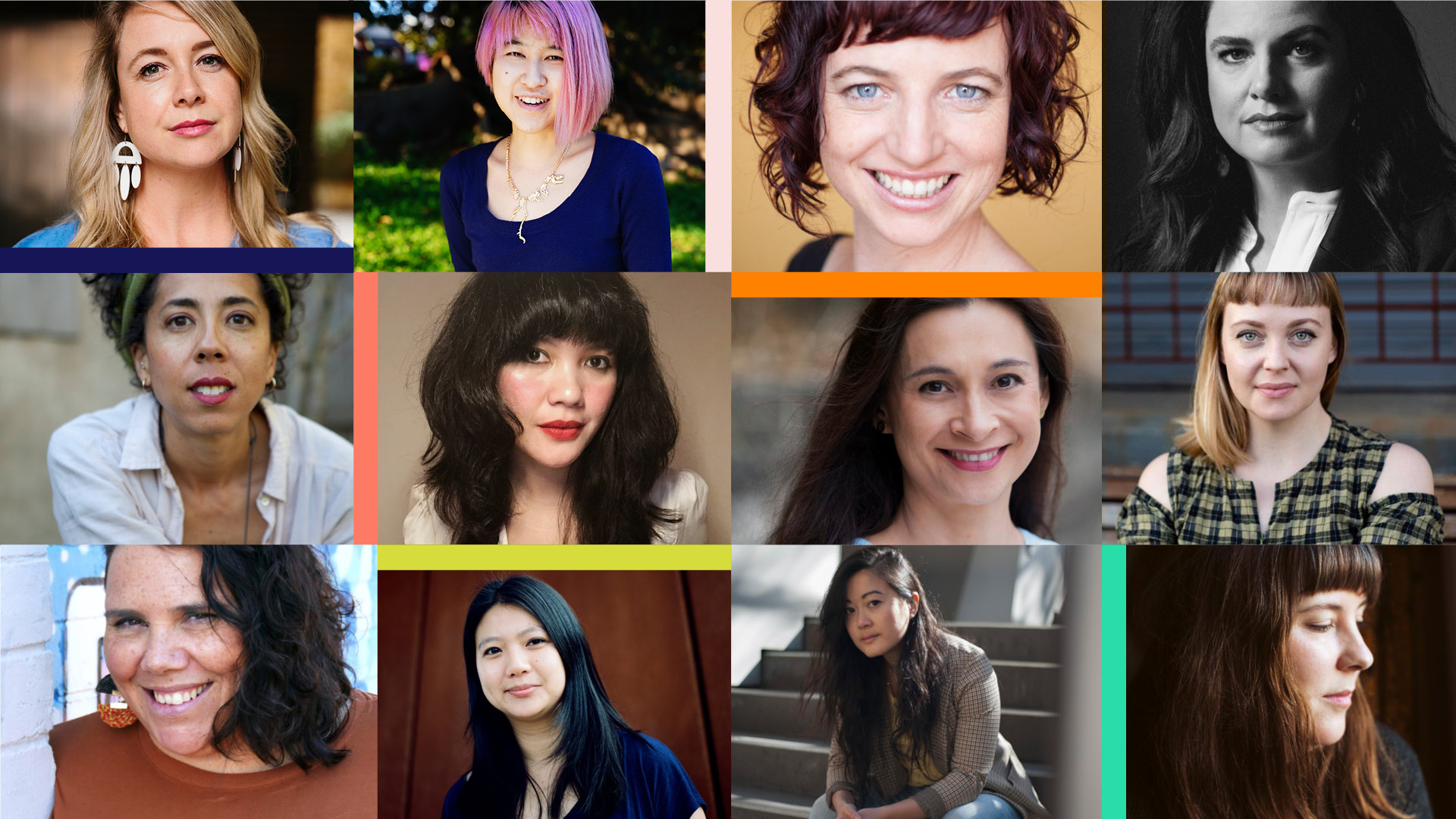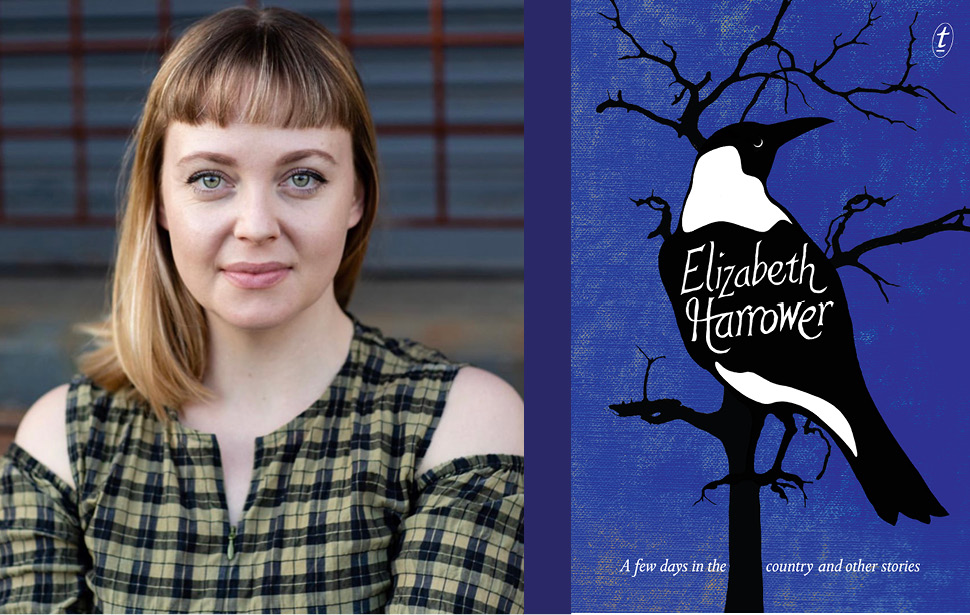Stellas on Stellas

In our first edition of Stellas on Stellas, we asked our 2021 longlist to reflect on a book they discovered through the Stella Prize, and the impact it had on them – as both writers and readers.

Rebecca Giggs on Tracker, by Alexis Wright
I had a good friend who was working as an editor on Alexis Wright’s Tracker about Tracker Tilmouth, which won the Stella Prize in 2018, and they told me that when the manuscript came in they measured it by the kilo, not by the page count – it was such a huge undertaking. It was always going to be this incredibly momentous keystone text in Australian letters and Australian history. But it wasn’t really until the Stella Prize announcement that I cleared the time and I really sunk into that book. And what a surprise it was – it was so powerful in its structure, the many voices, and the amplitude of how it’s been put together – so that’s one Stella book I’m incredibly grateful for.

S.L. Lim on The Death of Noah Glass, by Gail Jones
Through Stella I discovered the writer Gail Jones and her novel, The Death of Noah Glass. It’s a book which commits with full intensity and sincerity to its preoccupations – aging, loss, nostalgia, cinema. Later I had the chance to meet Gail in person – I was touched by her ability to be quite realistically cynical about some of the processes surrounding writing and publishing, but remain romantic about the work. Quite inspiring for someone starting off in the industry!

Laura Jean McKay on The Natural Way of Things, by Charlotte Wood
Just as The Natural Way of Things was making waves on its release, I was lucky enough to be involved in a mentorship programme that Charlotte was running. Not only was I able to read this incredible work, which demonstrated how the world of women was entwined with nature, I was also getting this pragmatic and strong advice from Charlotte herself. At the time, The Animals in That Country was at the very ungainly baby pelican stage and I was full of doubts. Reading The Natural Way of Things gave me an understanding of how difficult subjects – almost impossible subjects – could be imagined, at times violently, at times with such heart. I reread The Natural Way of Things recently and found even more in the text that I didn’t see when I was buried in the writing of my own. But Stella Prize-listed books tend to do that: demonstrate bravery, depth, and great storytelling at once.

Louise Milligan on See What You Made Me Do, by Jess Hill
A book that has really been brought to the public attention by the Stella Prize is Jess Hill’s See What You Made Me Do. It’s a book that I was already aware of and had read prior to winning the Stella Prize – Jess is a former colleague of mine at the ABC and is someone who I had presented with at writers festivals. I think winning the Stella Prize really gave her book an incredible second life, and people are still talking about it a few years down the track. Journalists like Jess and myself write these books because we want people to read them and to make change – not just because we like writing. And it’s a credit to the Stella Prize that it has helped spread Jess’ message to so many more readers than might have otherwise known about her book.

Cath Moore on Axiomatic, by Maria Tumarkin
The Stella Prize is such a wonderfully curated list of books for each year and one of my favourites that I discovered through the 2019 prize was Axiomatic by Maria Tumarkin. I love the premise, which is to defy and redefine five axioms about the past and, in doing so, Maria plays so wonderfully with ideas on memory, history, and the human psyche. Her language is evocative, urgent, poetic, considered, and defiant. I felt like my heart had been broken and repaired all at once. Reading it was such a profoundly moving and gratifying experience that it makes me emotional just thinking about it now!

Intan Paramaditha on Terra Nullius, by Claire. G. Coleman
One book that I discovered through the Stella Prize was Terra Nullius by Claire G. Coleman. Told from native and settler perspectives, it is an incisive retelling of colonisation in Australia through speculative fiction. Claire draws a parallel between alien invasion and the violence of colonialism, weaving past and future, the historical and the fantastic. It opens with familiar scenes but later defamiliarises the stage to confront us. Despite the fantastical elements, this is not a book that entertains; rather, it interrogates and unsettles. Speculative fiction has always been political, and this book really reminds me how important it is to have more Indigenous voices and perspectives in this mode of storytelling.

Mirandi Riwoe on Foreign Soil, by Maxine Beneba Clarke
There are so many excellent books on the Stella Prize list, but one of my favourites has always been Maxine Beneba Clarke’s Foreign Soil. I first read Foreign Soil at a time in my writing career when I was working out how and what I wanted to write. Beneba Clarke’s stories are beautifully written and her subject matter is meaningful and vivid. Her work really helped me clarify what I wanted to try to write.

Ellena Savage on A Few Days in the Country, by Elizabeth Harrower
I often wonder what it is like for great artists to give up their work. Is it a sensible, thoughtful decision, like deciding to quit a poorly paid job working under a mean, hyper-critical boss? Or is it a terrible mistake, like mass-emailing a sex tape, buying a black-market passport, and moving to New Zealand to make doilies? Is quitting writing a failure or a liberation? A choice or an inevitability? Of course I can’t know the secrets of Elizabeth Harrower’s heart, but reading her work, including her Stella Prize-shortlisted story collection A Few Days in the Country, suggests that for her, not writing was – must have been – a liberation from intense discomfiture. Harrower’s fiction stares at you like an excoriating ex, unable to let anything slide. Not your pathetic need for validation or your pathological relationship to control or your childlike, sneering aggression. Not the look of your mouth when you smile (uncouth), or the way you can’t just say what you mean. If I could write or even perceive as sharply as Harrower, I would have to quit writing as well. Too dangerous. Harrower writes about power and control the best – the pathology of abuse, near-abuse, and the abused – like someone who knows what it is to labour intensely over something so small, so unimportant, that it becomes everything and too much. The word ‘mordant’ comes to mind. Also, brilliant, exacting, and rigorously satisfying.

Nardi Simpson on An Isolated Incident, by Emily Maguire
In 2018 I did a writing course at Writing NSW to learn how to write a book. It was a class of about 20 people – all trying to get our stories onto the page – and our mentor was Emily Maguire. For a year, Emily sat with us in a room, teaching us and giving us confidence to tell the stories that were inside of us. That year, she was shortlisted for the Stella Prize, so whenever I think about the prize I think of a room full of friends and their stories and our beautiful, generous, kind teacher and her book The Isolated Incident.

Elizabeth Tan on Lucky Ticket, by Joey Bui
I discovered Lucky Ticket by Joey Bui through the Stella Prize when it was longlisted in 2020. I found a few of the stories in this book quite bruising to read, but I sensed all throughout the collection the author’s conviction that every character is deserving of dignity. My favourite story is ‘Mekong Love’, because the story begins quite ominously, as if it’s going to barrel towards a really terrible conclusion, but then it takes an unexpected and delightful turn. To me, it’s a story about the different ways in which you can fall in love with a person or, perhaps, rise to the occasion of love.

Jessie Tu on The Museum of Modern Love, by Heather Rose
One of the books I discovered through Stella was Heather Rose’s 2016 novel The Museum of Modern Love. I absolutely adored this book so much. I read it over two flights on my way to New York, and it was just the most magical and invigorating prelude to my own Manhattan adventures. The way she paints the MOMA and uses language to examine the awesome power of performance art totally floored me, and the characters were folks I spent years thinking about. It was just mesmerising.

Evie Wyld on Mateship with Birds, by Carrie Tiffany
Mateship with Birds by Carrie Tiffany is a book that has always stayed with me. I admire it so much for its beauty and the way it takes its time. I often think of the birdwatching notes and what a clever and seamless device they are – they pick up something everyday and make you re-examine it, and make me miss a Kookaburra when I’m in England.




